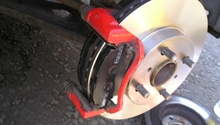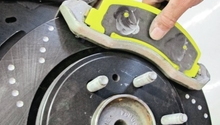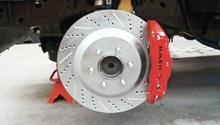Ford F-150/F-250: Why Do My Brakes Squeak?
Here's how to diagnose and repair the root cause of your brakes' squeaking on your Ford F-150 or Super Duty.
This article applies to the Ford F-150 (2004-2014) and the F-250 (2005-2014).
If your brakes are squealing, they are trying to tell you something. The noise may be coming from worn pads, scoring or scratching on the brake rotor, contaminated brake pads, glazed pads, missing or broken anti-rattle clips, or a faulty brake caliper. Below are some examples of what to look for, and how to take care of the problem.
Step 1 - Check for worn brake pads
Brake pads should be changed every 30,000 to 70,000 miles.
- After the vehicle is securely lifted, remove the wheel to access the brake assembly. There is a viewing hole in the caliper through which you can look at the pads.
- If the pads are worn, then they need to be replaced. New brake pads are about 1/2" thick. If the pad has worn down to 1/4" or less, replace them immediately.
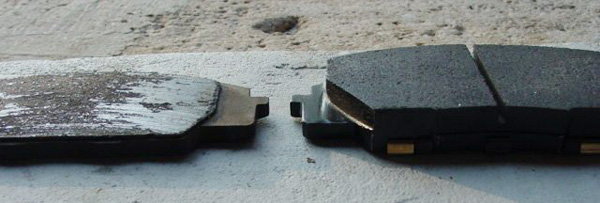
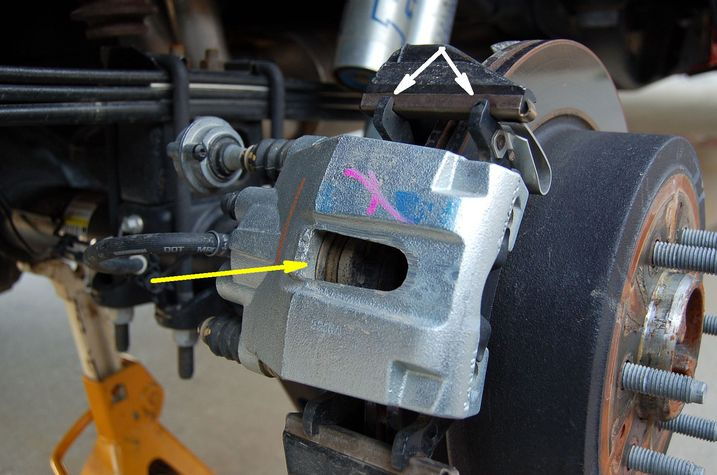
Related Article:
- How to Replace Disc Brake Pads- Ford-trucks.com
If, after changing your pads, your brakes still squeal, go to Step 2.
Step 2 - Check for a scored brake disc
Inspect the rotor for evidence of scoring.
-
Replace your rotor if it looks like the rings of Saturn. A worn rotor will cause your pads to wear out more quickly, and negatively impact your stopping ability.
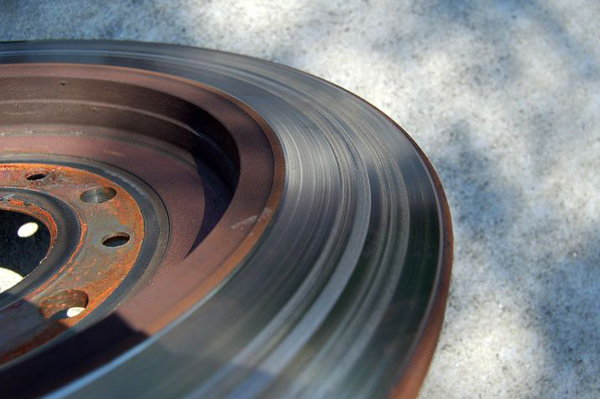
Related Article:
- How to Change Brake Rotors - Ford-trucks.com
If the squealing persists, go to Step 3.
Step 3 - Check for contaminated break pads
If the problem isn't worn pads or rotors, the noise could be coming from contaminated brake pads. Spillage during maintenance or brake caliper leakage could cause contaminated pads.
- Check the surface of the pads.

If this wasn't the problem, proceed to Step 4.
Step 4 - Check for glazed pads
Braking can cause a pad's temperature to reach up to 500 degrees, which scorches the pad surface.
- If the pads are glazed and feel like they have no friction, replace them.
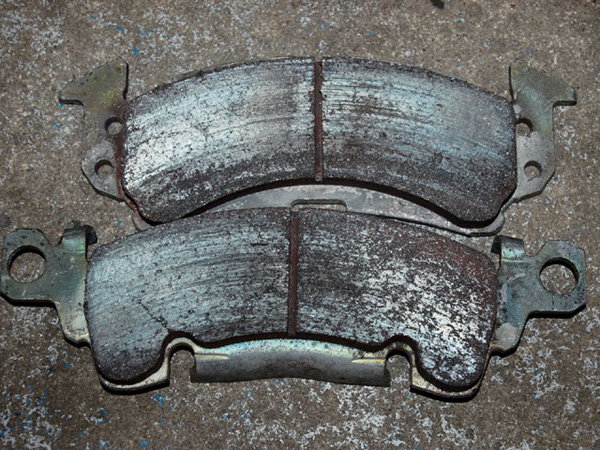
If this doesn't solve it, you may have to do a little more detective work.
Step 5 - Look for missing or broken anti-rattle clips
These clips allow the brake pad to move freely inside the caliper. If they break, or come loose, the pad will vibrate, making noise.
- Remove the tire.
- Knock the pins out.
- Install anti-rattle clip on the inner pad.
- Install new pins.
- Mount the tire back on.

If this still doesn't fix the problem, move on to the last step.
Step 6 - Check for faulty brake caliper
A brake caliper is the piston mechanism that presses the brake pads against the rotor to stop the vehicle. If it's faulty, then braking is compromised.
Featured Video: Why Do My Brakes Squeak?
Related Discussion and Site
- How to Replace Brake Calipers - Ford-trucks.com
- Information - Mbworld.org

